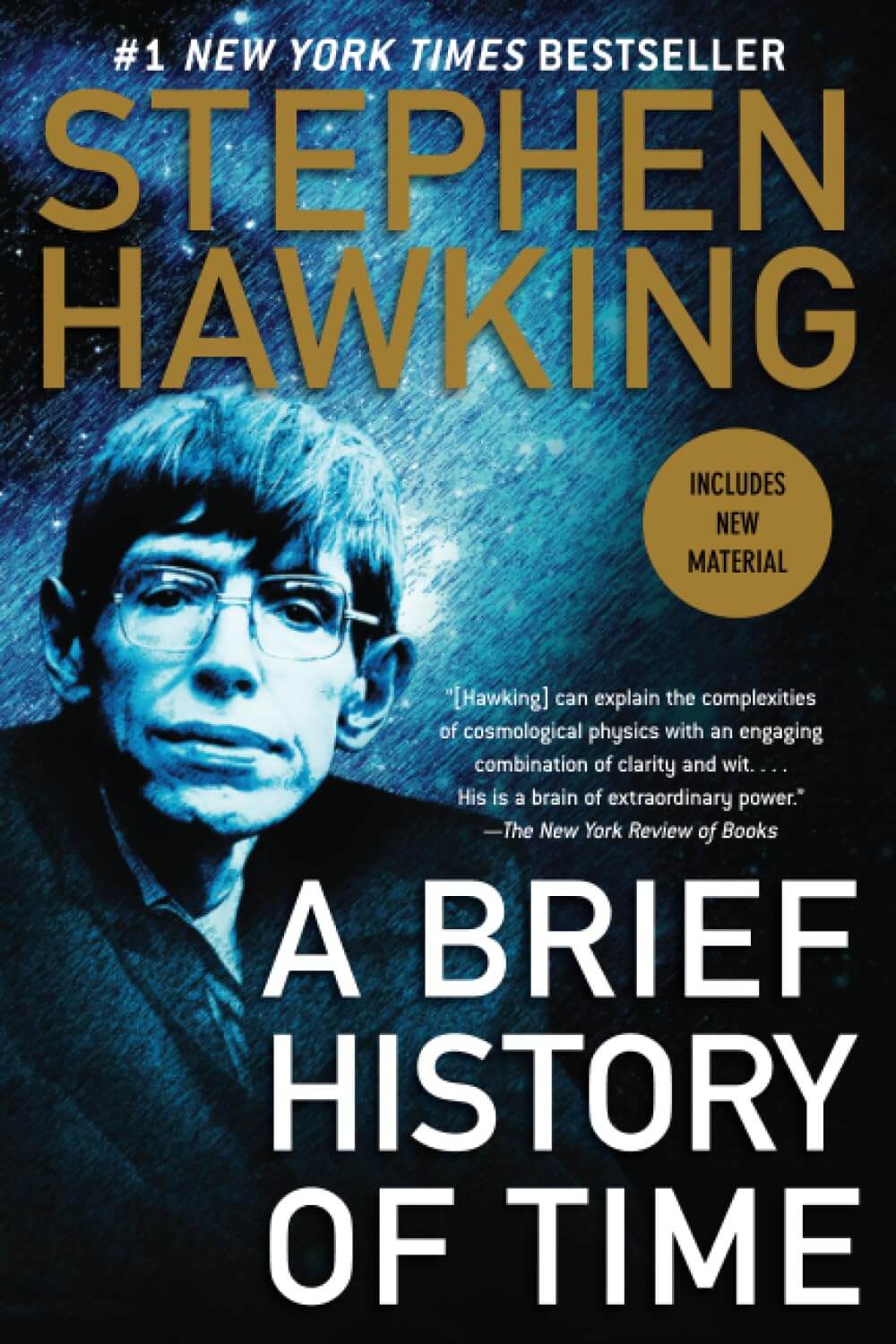The weather is getting colder, and there’s no better time to curl up with a good book! Whether you prefer to read outside amongst the fall foliage or snuggle up with a cozy blanket indoors, it’s never a bad time to dive into a new read. But before you head straight for the fiction shelf, consider picking up a nonfiction title! While fictional stories can transport you to other worlds, nonfiction offers a new perspective on the world we live in. From engaging celebrity memoirs to informative analyses of science and history, the best nonfiction books have a little something for everyone.
No matter what genre you prefer, reading is a great way to engage your brain. Science agrees, with one study finding that children who are avid readers and will pick up a book just for fun tend to develop into happier and smarter teenagers. Researchers at the University of Cambridge discovered that reading for 12 hours a week is optimal for youngsters to foster bigger and better brains. Young readers exhibit better mental health, with fewer indicators of stress and depression.
Picking up a paperback and engrossing yourself in a new book is a simple but effective way to entertain yourself, learn something new, and step away from the screens. Of course, an e-book or audiobook could also do the trick, but according to a new survey, most people still prefer a good old-fashioned paperback. There’s just something satisfying about turning the page and holding a physical book in one’s hands, as over two-thirds of adults say they always opt for a real book over digital reading.
Whether you’re reading a paperback or listening to an audiobook, nonfiction is an exciting and diverse genre for all readers to enjoy. But with so many books out there, it can be difficult to know which to read next. That’s why StudyFinds did the work for you and searched 10 expert websites for their rankings of the best nonfiction books. This list includes the most frequently recommended reads, but as always, be sure to let us know in the comments if you have a favorite we missed!

The List: Best Nonfiction Books, According to Experts
1. “The Sixth Extinction” by Elizabeth Kolbert
If you’re in the mood for a thought-provoking read, you can’t beat “The Sixth Extinction.” Written with undeniable style (even when discussing the potential of mass extinction), you’ll find it hard to put down and even harder to stop thinking about. “When the next major mass extinction hits the planet, as scientists foretell it soon might, humanity will be the victim — and the perpetrator,” explains Reedsy. “The Sixth Extinction charts the transformative, and potentially catastrophic, impact of human activity on the planet, forcing us to consider what change we must enact now to ensure the continued survival of our species — and all species.”

“Human beings are causing the sixth mass extinction in the history of life on Earth — and it is going to be the deadliest event since the extinction of the dinosaurs,” adds Book Riot. “Traveling to different corners of the world and interacting with scientists who are studying different aspects of this catastrophe, Elizabeth Kolbert lays bare in precise prose the havoc that we are wreaking on other inhabitants of the planet. A must-read for a chilling and humbling look at what humankind’s legacy on Earth is going to be.”
“There have been five mass extinctions on Earth in the past half-billion years, which caused the diversity of life to plummet. (Looking at you, asteroid that wiped out the dinosaurs.) Scientists are monitoring the next great extinction, and we’re the cataclysm,” says Reader’s Digest. “Kolbert, a staff writer for The New Yorker, blends elegant writing with hard research into a compelling and entertaining read; each chapter examines an extinct species and how we learned about it, or a declining ecosystem where die-off is currently happening. The Sixth Extinction makes us look at the disappearances happening right before us—and consider our lasting legacy.”
2. “A Brief History of Time” by Stephen Hawking
A book by one of the most renowned astrophysicists in history may not be your first choice for a nonfiction read, but hear us out. No matter how well you did in your high school physics class, “A Brief History of Time” is well worth the hours you’ll spend reading it. Engaging and surprisingly easy to follow along with, even the least science-curious minds will find themselves both enjoying and understanding Steven Hawking’s writing. “Was there a beginning of time? Could time run backwards? These are just some of the questions considered in an internationally acclaimed masterpiece by one of the world’s greatest thinkers,” notes Abe Books.

“For many, physics is an opaque and mysterious science — even for some scientists, trying to define and measure the universe can be daunting,” says BookBub. “Hawking, one of the most brilliant scientific minds of the modern era, takes the complex subject of time and manages to explain it to the layperson in plain language, taking mind-bending concepts and rendering them comprehensible. It remains an ideal book for anyone seeking to understand the reality we exist in.”
In this book, Hawking takes the time to answer questions you probably want the answers to and just haven’t thought to ask. As Reader’s Digest puts it, “Hawking’s prose is accessible and gripping, and it reads as if you’re talking to your favorite physics professor. He asks (and answers) questions like: Where did the universe come from? Did it have a beginning, and if so, what came before? What is the nature of time, and will it ever come to an end?”
3. “Freakonomics” by Steven D. Levitt and Stephen J. Dubner
Ever wondered why certain things just are the way they are? This book asks and answers those questions through the lens of an economist. “Freakonomics, the famous nonfiction book by Steven D. Levitt and Stephen J. Dubner, reveals ‘the hidden side of everything.’ It’s a bold claim, but not one that it fails to live up to,” says Reedsy. “The authors make the case for constantly asking questions, challenging accepted truths, and looking at facts and data in a novel way. Freakonomics is a witty, eye-opening interpretation of the economy, suitable to any reader with an interest in why things work the way they do.”

“The concept of Freakonomics looks at a variety of behavioral and social phenomena through an economic lens. This best-seller, which sold more than four million copies worldwide, spawned numerous other books and a podcast that changed the way we look at the world. The authors discuss the everyday workings of everyday things, like how to catch a cheater or why your new car is worth so much less the moment you drive it off the lot,” explains Reader’s Digest. “With a following of readers from the New York Times, economist Levitt received a wide range of queries from both ordinary people and the likes of a Tour de France champ and the CIA. Here, with the help of Dubner’s humorous writing, he provides the answers to life’s somewhat pressing questions.”
Unlike most books written by economists, you may find yourself actually laughing aloud at the pages of “Freakonomics.” But that doesn’t mean you won’t learn something (or several things!). As BookBub says, “for its sheer audacity, Freakonomics should be on everyone’s nonfiction bucket list. With sharp wit and a readable style, Levitt and Dubner look at various aspects of society, history, and economics from unexpected angles. The book has inspired millions of people to change their perspective and be more creative and fearless when seeking to understand a phenomenon or seemingly immovable situation.”
4. “In Cold Blood” by Truman Capote
True crime lovers and nonfiction readers alike may have Truman Capote to thank for the rise of their favorite genres. “In Cold Blood” is a thrilling read that is often credited with creating the nonfiction genre we know today, along with popularizing the telling of true crime stories. “It’s not often a whole new category of writing is created, but Capote is often credited with inventing the concept of the ‘nonfiction novel,’ in which the style and techniques of fiction are applied to a rigorously researched real-life episode,” claims BookBub. “Beautifully written, the story of the murder of the Clutter family in Kansas in 1959 is explored in sharp detail. Capote (assisted by his friend and research partner Harper Lee) expertly describes the victims and killers, along with those investigating, prosecuting, and documenting the crime. The result is an absorbing study that reads like an expert thriller.”

“Capote’s stark examination of a brutal quadruple murder from the 1950s is a seminal true crime book, an essential read for anyone interested in the genre. This genre-breaking ‘nonfiction novel’ from the author of Breakfast at Tiffany’s tells the true tale of the Clutter family murders and the subsequent trial and execution of the two perpetrators,” notes Reader’s Digest. “In addition to retelling the facts of the story, Capote brings to life the emotional turmoil of the residents in the small Kansas town where the murders took place and paints empathy for the men who committed them. Capote was one of the pioneers of this form of narrative, or literary, nonfiction—what was called New Journalism. Originally serialized in The New Yorker, In Cold Blood was nominated for the Pulitzer Prize in 1966 and was later made into a film of the same name.”
If you love to turn on a true crime show at the end of the day, try picking up a copy of “In Cold Blood” instead. It follows much of the same structure of modern true crime programming while using masterful writing to bring you straight into the heart of the story. As Suggested Reads puts it, “you’ll go behind-the-scenes as Truman Capote reconstructs the police investigation that led to the capture, trial, and execution of the infamous killers.”
5. “Silent Spring” by Rachel Carson
A must-read for any nature lover, “Silent Spring” is a striking read that marks a pivotal moment in the environmental movement. Informative, exciting, and inspirational, it’s considered by many experts to be among the most definitive reads for environmentalists. As Abe Books explains, “Carson’s passionate concern for the future of our planet reverberated powerfully throughout the world, and her eloquent book was instrumental in launching the environmental movement.”

“An environmental classic first published in The New Yorker in 1962, Silent Spring describes the more troubling effects people were having on the environment, including the destructive use of DDT, an insecticide,” adds BookBub. “The book caused a stir that ultimately led to a ban on DDT, alongside other laws to clean up our water, air, and land. This book will remind you of how far we’ve come — and what actions still need to be taken.”
Regardless of how informed you are on environmental issues, this book serves as a great refresher on the importance of caring for the planet. “Silent Spring alerted the world to the adverse effects of the indiscriminate use of pesticides, and was a timely warning against human arrogance about the ability to exploit the natural world,” says Book Riot. “This book is both beautifully written and ground-breaking, having helped launch the modern environmental movement.”
6. “The Emperor of All Maladies” by Siddhartha Mukherjee
We all know someone who has been touched by cancer. It’s a devastating reality for countless individuals and families, and one that scientific research continues to work towards treating and curing. In this book, author Siddhartha Mukherjee dives into the nitty-gritty details of cancer research, treatment, and more. “A disarming ‘biography’ of disease, The Emperor of All Maladies chronicles thousands of years of people grappling with the terrifying specter of cancer,” explains Reedsy. “From the patients who have fought it, to the doctors who have treated it and the researchers who have sought to eradicate it, this riveting account captures the ongoing battle against a deadly condition.”

“Mukherjee, an oncologist and researcher, tells the gripping story of cancer and how it has affected human lives for thousands of years. He recounts the discoveries and victories as well as the setbacks and adversities. The book won the Pulitzer Prize in 2011, for which the jury called it ‘an eloquent inquiry, at once clinical and personal.’ It was also a finalist for the National Book Critics Circle Award and became the subject of a Ken Burns documentary on PBS,” adds Reader’s Digest. “It’s a biography in the true sense of the word—an intimate look inside the ‘mind’ of cancer in order to understand and demystify it—and Mukherjee raises the ultimate question: Is cancer’s demise in our future?”
Unlike many cancer stories, which tend to focus wholly on either the human side or the science side, “The Emperor of All Maladies” inextricably intertwines the two. Both sides take center stage, telling a compelling and complete story. “In this history of humanity’s fight to survive and ultimately defeat cancer, Mukherjee crafts a fascinating tale,” adds BookBub. “In one corner is the ’emperor of all maladies,’ which until recently was almost always a death sentence. In the other, people who endure incredible pain and suffering in exchange for an often uncertain future. The history of how cancer was defined and treated is fascinating, but Mukherjee’s glimpse into a future when it is dethroned is as exciting as any other aspect of the book.”
7. “The Immortal Life of Henrietta Lacks” by Rebecca Skloot
Whether you’re a science lover or not, you’re sure to be pulled in by the story of Henrietta Lacks. Her life changed science and medicine in a major way, and the circumstances of her unknowing contributions are at the center of important discussions on medical ethics. “Henrietta Lacks’ cells were used to develop the Polio vaccine, study the effects of radiation and have even led to advances in cloning and reproductive technology, but her family never even knew she’d contributed until decades after her death,” says Good Housekeeping. “This is the story of the Lacks family as much as our medical system as a whole, and it’s a fascinating and eye-opening one.”

“When Henrietta Lacks was dying of cervical cancer, her cells were taken without her knowledge or consent. Those cells, called HeLa, are still alive more than 70 years later and have contributed to remarkable strides in medicine, including the polio vaccine, in vitro fertilization, gene mapping, and chemotherapy,” explains Reader’s Digest. “But at what cost? This number one New York Times best seller, which appeared on more than 60 best-of-the-year lists in 2010, tells the story of Lacks, the journey of her cells, and what happened when her children learned of the medical theft 20 years after her death—and the millions of dollars they were excluded from. In this important and engaging read, Skloot turns a light on medical ethics and the long history of medical experimentation on Black Americans.”
Written by Rebecca Skloot with the help of Henrietta Lacks’ loved ones, including her daughter, this book is as informative as it is touching. Perfect for those interested in science, family, and social justice, you’re sure to find something to love. As BookBub puts it, “exploring the complex intersection of race and ethics in science, The Immortal Life of Henrietta Lacks is the story of a daughter’s journey to honor her mother’s remarkable legacy.”
You might also be interested in:
Sources:
- Pan MacMillan
- Mark Manson
- Book Riot
- Reader’s Digest
- James Clear
- Abe Books
- Reedsy
- BookBub
- Good Housekeeping
- Suggested Reads
Note: This article was not paid for nor sponsored. StudyFinds is not connected to nor partnered with any of the brands mentioned and receives no compensation for its recommendations. This article may contain affiliate links.
